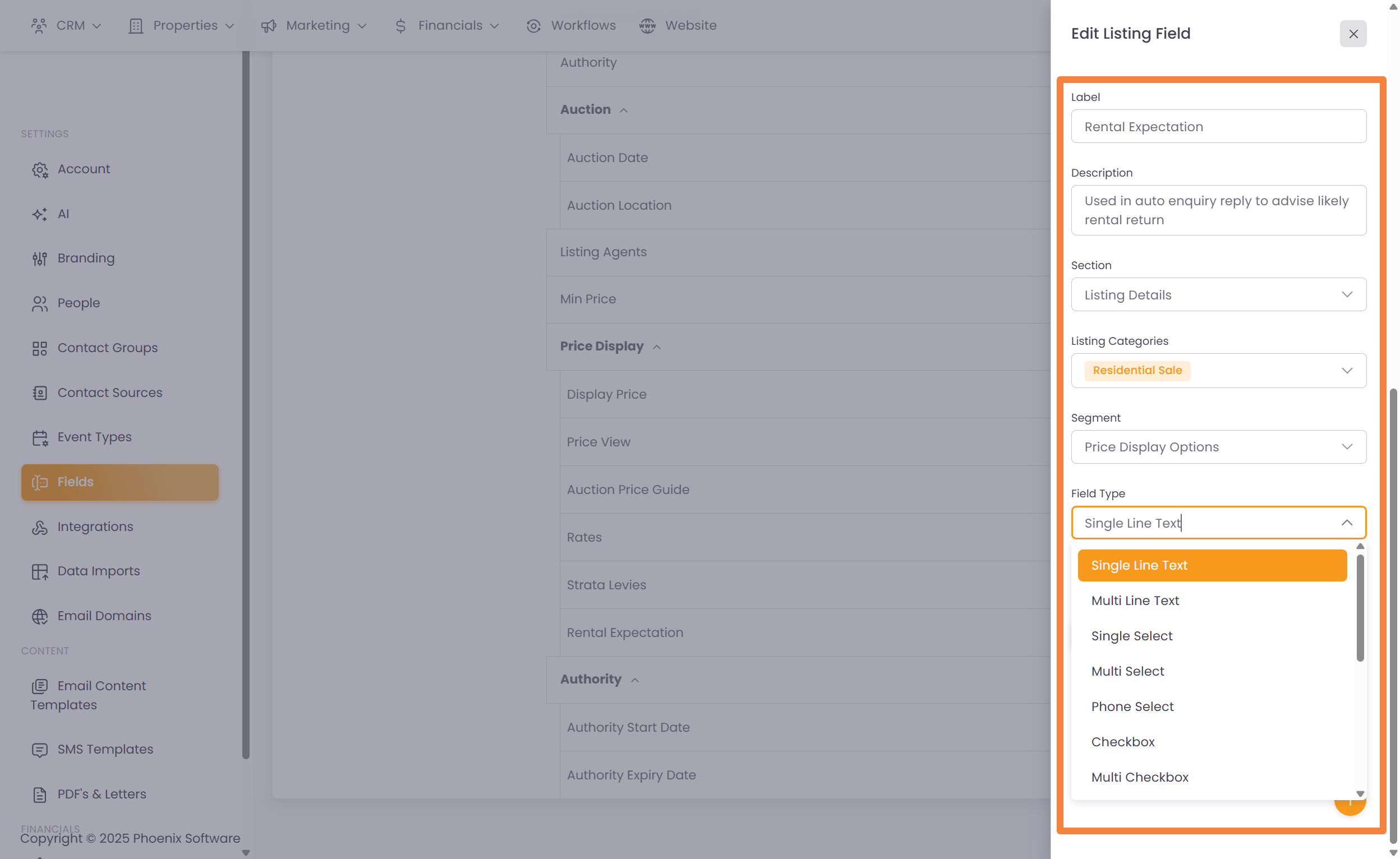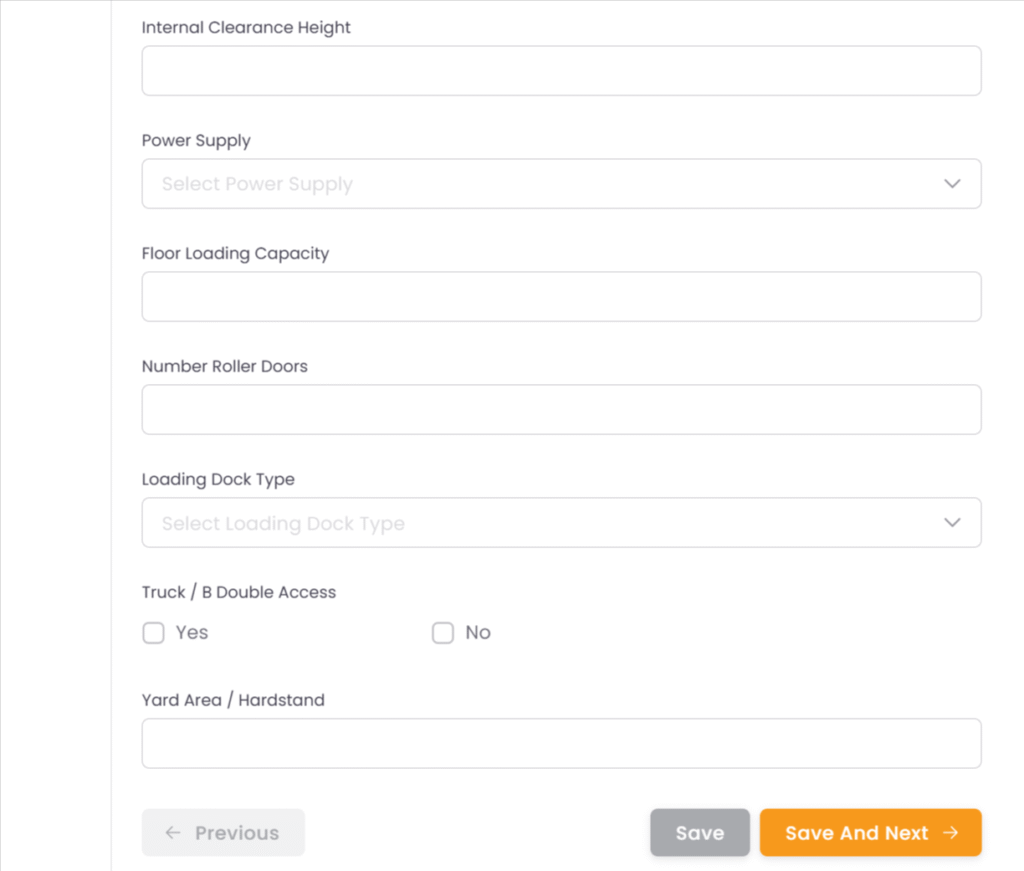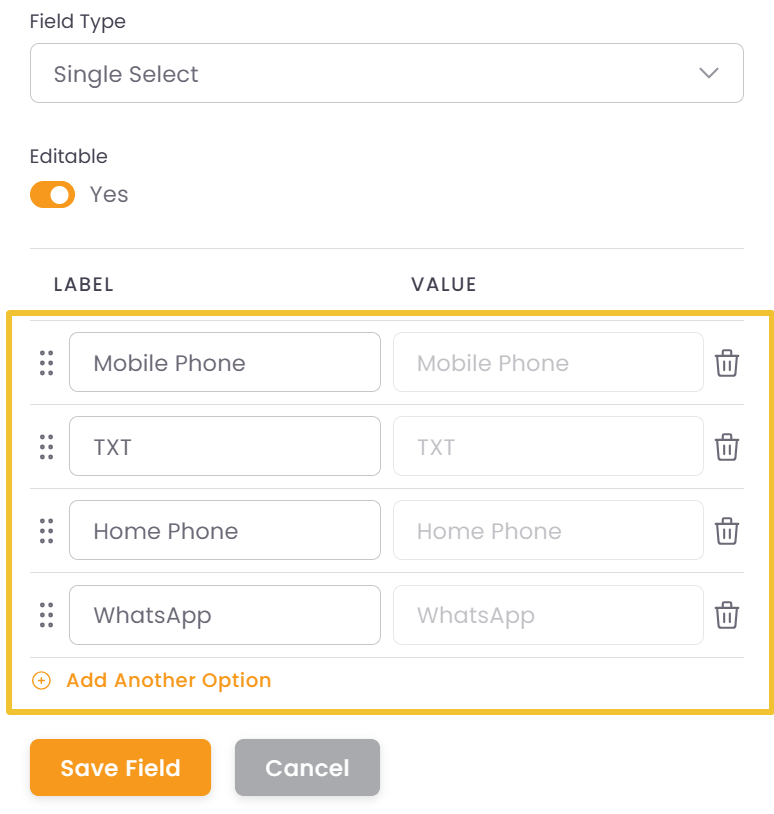20 Jun

Today, your CRM needs to be more than just a database. It must be an adaptable, intuitive, and powerful tool that supports the unique needs of every agency and agent—regardless of whether they work in residential, commercial, rural, or niche markets.
One of the most critical features a CRM can offer in this space is the ability to create custom fields on both contact and property listing records. This seemingly small capability has a significant impact on how agencies operate, respond to clients, and ultimately, how efficiently they close deals. Let’s explore how customising your CRM can lead to better experiences for both the agency and your customers.
1. Deliver Personalised Responses with Relevant Information
Buyers today expect fast, accurate, and informative replies when they enquire about a property. Having custom fields means agents can store key information—like Price Guides, Council Rates, Strata Levies, or Rental expectations—directly in the property record.

With these fields in place, an agent can activate an enquiry workflow that responds automatically by pulling in the relevant details. No need to dig through external documents or jump between systems. It’s streamlined, professional, and builds immediate trust with the buyer.
2. Serve Niche Markets with Confidence
Not every real estate transaction is a standard residential sale. Agents who deal in commercial properties, rural holdings, businesses, or holiday accommodation often require different sets of data to be captured and stored.
For instance:
- A rural property may need fields for water licenses, fencing types, arable land percentage, or machinery inclusions.
- A business broker may store EBITDA, lease expiry dates, or staffing numbers.
- An industrial property might include fields for power supply, truck access and loading dock types.

Without the ability to create custom fields, agents are forced to enter this information into inappropriate standard fields or worse—leave it out altogether. This compromises reporting, confuses staff, and reduces the value of your CRM investment.
3. Promote the Right Information on Your Website
Custom fields aren’t just about internal data management—they also play a major role in how listings are promoted externally. Many agencies wish to display or make downloadable custom documents such as Information Memoranda (IMs) or Confidentiality Agreements via their websites or through buyer enquiry automation.
A flexible CRM should allow you to upload and link these documents to listings using custom fields, ensuring seamless integration with your digital presence and making your website a powerful lead-capture and information resource.
4. Improve Data Accuracy and Team Consistency
One of the silent killers of productivity in real estate is inconsistent data entry. When each team member uses a CRM differently, reporting becomes unreliable, and marketing campaigns risk targeting the wrong audience or sending incorrect information.
Custom fields give agencies the ability to define exactly what data is required and in what format. Whether it’s drop-down selections, text fields, or date pickers, structured data entry allows for:
- Cleaner reporting
- More accurate segmentation
- Targeted and timely email or SMS campaigns
- Easier staff training and onboarding

By standardising how data is captured, agencies can ensure all team members are on the same page and reduce the risk of human error.
Outdated CRMs Are Holding Agencies Back
Unfortunately, many CRM platforms used by Australian real estate agencies are legacy systems—designed over a decade ago and lacking the flexibility today’s agents need. These platforms often lock users into rigid data structures with little to no room for customisation. As a result, users become frustrated, submitting ongoing support requests or feature suggestions just to get basic functionality that should already exist.
This leads to:
- Inefficient workflows
- Missed marketing opportunities
- Loss of staff confidence in the software
- Agencies shopping around for more modern alternatives
The Future Belongs to Flexible CRM Solutions
In an industry as dynamic and client-focused as real estate, your CRM should work for you—not the other way around. Custom fields empower agents to store and use information that is meaningful to their specific market, drive better client communication, and operate with consistency and professionalism.
If your current CRM doesn’t offer the ability to customise data the way your business needs, it may be time to ask: is your technology keeping up with your ambition—or holding it back? Speak with us today to see how we can assist in personalising your CRM.



